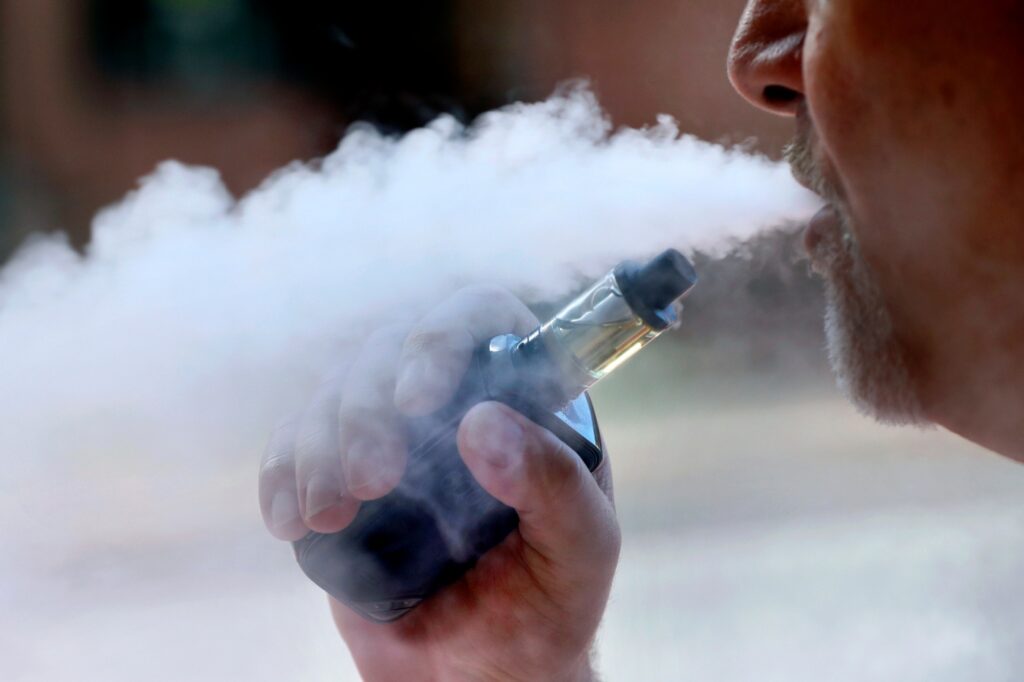
The sale of flavored tobacco will be banned in Santa Ana starting next month.
The City Council voted unanimously Tuesday night to adopt an ordinance that prohibits the sale of the menthol, fruit and candy-flavored products criticized for luring youth into an addictive nicotine habit.
“It’s a matter of health,” Councilwoman Nelida Mendoza told her colleagues.
The council considered giving local retailers additional time to dispense with the stock they already have in hand but the majority dismissed the idea, saying the council has been discussing the topic for months and merchants have had a chance to prepare.
“There’s been sufficient notice,” Mayor Vicente Sarmiento said of the ordinance. The council initially approved the idea on March 1 and it is set to take effect on April 14.
Santa Ana is the largest city in Orange County to pass a comprehensive flavored tobacco ordinance without any exemptions, according to the American Cancer Society Cancer Action Network. Other cities with similar laws include Stanton and Buena Park, which exempts the one hookah lounge in its city, ACSCAN officials said. In 2019, Laguna Niguel banned the sale of flavored electronic cigarettes.
“Santa Ana has the strongest law in the county and it will provide the strongest protection possible for our youth,” Lynda Barbour, Southern California government relations director with ACSCAN, said Wednesday.
The Santa Ana law, Barbour said, is also stricter than a state law, SB 793, which was approved in 2020. That law bans the retail sale of flavored tobacco with exemptions for hookahs and premium cigars. That law was challenged and is going before voters in a veto referendum this November.
In 2008, Santa Ana banned hookah lounges, though the water pipe instrument used for smoking is still sold in the city. Thomas Lawton, government affairs director for Fumari, a San Diego-based company that sells hookahs, tobacco and related products, said water hookahs are part of an important cultural tradition that Persians, Arabs, Armenians, Turks, Indians, North Africans and other minority groups have practiced for nearly 1,000 years. The National Hookah Community Association, Lawton said, supports efforts to prevent youth from getting hooked on nicotine but fears that hookahs have become “collateral damage on the war against vape.”
“The flavor ban is meant to put an end to the youth vaping epidemic, although there is no teen hookah epidemic,” Lawton said.
“Many immigrant small business owners have built their business doing what they know from their home country. It is unfortunate that the Santa Ana city council did not amend the ordinance to include a cultural exemption for hookah,” Lawton said.
In a national youth tobacco survey conducted by the Food and Drug Administration last year, about one in eight high school students in the U.S. said they used a tobacco product within the previous 30 days. E-cigarettes were the favorite, and hookah use accounted for less than 1%, according to the survey.
But smoking kills 480,000 Americans a year, according to the American Cancer Society. Barbour praised the Santa Ana council for “ending the sale of all flavored tobacco products — including menthol cigarettes and e-cigarettes.
“This is a critical first step to protect kids from the dangers of tobacco and help decrease health disparities in our communities,” she said. “Menthol (and) other candy- and fruit-flavored tobacco products are a key part of the tobacco industry’s strategy to bait youth into a potential lifetime of addiction. Flavors are the main reason why kids start using tobacco product.”
In Santa Ana, violation of the new law could lead to the seizure of illegal products and eventually result in a business losing its tobacco license.
More Santa Ana news
Santa Ana downtown library gets new play area, plans $7 million renovation project
Santa Ana offers free downtown parking to help businesses hurt by streetcar construction
Santa Ana Zoo starts on new exhibits for giant river otters, monkeys
Company sues OCTA for at least $50 million over streetcar project
For young Afghan refugees in Southern California, education means studying in hotels
